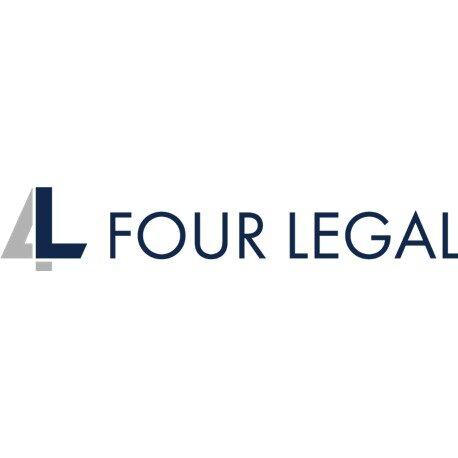Best Energy, Environment & ESG Lawyers in Belgrade
Share your needs with us, get contacted by law firms.
Free. Takes 2 min.
List of the best lawyers in Belgrade, Serbia
Legal guides written by Business Law office - Advokatska Kancelarija:
- Why Invest In Serbia
About Energy, Environment & ESG Law in Belgrade, Serbia
Energy, Environment and ESG (Environmental, Social, and Governance) regulations in Belgrade, Serbia, form a dynamic and increasingly vital area of law. These legal fields address issues such as sustainable energy development, environmental protection, corporate governance, and compliance with international sustainability standards. In recent years, Serbia has focused on aligning its legal frameworks with the European Union’s green policies, making this a prominent area for businesses, investors, developers, and the general public. Companies and individuals engaged in activities that impact the environment or energy sector must navigate complex rules, licenses, permits, and reporting obligations.
Why You May Need a Lawyer
Legal guidance in Energy, Environment and ESG matters can help you avoid costly regulatory traps, ensure compliance with evolving local and international laws, and promote sustainable business practices. Common situations where legal assistance is needed include:
- Obtaining licenses for energy production or distribution
- Permitting and compliance for construction or industrial projects impacting the environment
- Negotiating or drafting renewable energy deals and Power Purchase Agreements (PPAs)
- Representing interests before environmental and energy regulators
- Managing risks associated with environmental liability and remediation
- Advising on corporate ESG disclosures and sustainability reporting
- Handling disputes related to environmental damage or breaches of energy contracts
- Interpreting and implementing EU-aligned regulatory updates
Local Laws Overview
Serbia’s legal framework for energy, environment and ESG is rooted in both domestic laws and commitments toward EU accession. Key legislation includes the Energy Law, Law on Environmental Protection, Law on Integrated Prevention and Pollution Control, and laws governing renewables and energy efficiency. Environmental impact assessments, strategic impact assessments, and public participation are mandatory in many development projects. Regulatory bodies such as the Ministry of Mining and Energy, the Energy Agency of the Republic of Serbia (AERS), and the Serbian Environmental Protection Agency (SEPA) oversee the implementation of these laws. ESG reporting is evolving, with growing pressure for businesses to disclose social and environmental impacts in line with global best practices.
Frequently Asked Questions
What permissions are needed to start a renewable energy project in Belgrade?
Several permits are required, including location permits, construction permits, environmental impact assessments and operation licenses issued by regulatory bodies. Early legal advice is recommended to ensure compliance at every stage.
How does Serbia regulate environmental protection?
Environmental protection is governed by various laws that establish standards for air, water and soil quality, as well as waste management and pollution control. Compliance is monitored by SEPA and other governmental agencies.
What is ESG and why is it important in Serbia?
ESG stands for Environmental, Social, and Governance factors, which represent criteria for assessing a company’s ethical impact and sustainability. In Serbia, adhering to ESG principles enhances investor confidence and helps companies remain competitive as EU regulations evolve.
Are there financial incentives for investing in renewable energy?
Yes, Serbia offers feed-in tariffs, subsidies, and other incentives to encourage investment in renewable energy projects, subject to eligibility and timely compliance with regulatory requirements.
What are the penalties for violating environmental regulations?
Penalties can include fines, remediation orders, suspension of business activities, and, in severe cases, criminal responsibility for individuals and responsible persons in legal entities.
Are environmental impact assessments mandatory?
Yes, for many construction and industrial projects, an environmental impact assessment is required before permits can be issued. This process involves public participation and regulatory review.
What agencies enforce energy and environmental laws in Belgrade?
Key agencies include the Ministry of Mining and Energy, the Energy Agency (AERS), and the Serbian Environmental Protection Agency (SEPA). Local authorities also play a role in permit issuance and environmental monitoring.
How does Serbia approach EU energy and environmental directives?
Serbia is aligning many of its energy and environmental rules with EU directives as part of the EU accession process. This includes adopting new standards and enhancing enforcement mechanisms.
What are a company’s ESG disclosure obligations?
While not yet as prescriptive as in the EU, large companies and those seeking foreign investment are expected to publish ESG-related information, particularly regarding environmental impact, governance structures, and social policies.
Can individuals or NGOs challenge environmental decisions?
Yes, Serbian law allows interested parties, including individuals and NGOs, to participate in environmental proceedings and challenge permits or decisions that potentially harm the environment.
Additional Resources
For additional support and information, consider reaching out to:
- Ministry of Mining and Energy of the Republic of Serbia
- Energy Agency of the Republic of Serbia (AERS)
- Serbian Environmental Protection Agency (SEPA)
- Chamber of Commerce and Industry of Serbia - Energy and Environmental Protection sections
- Belgrade Bar Association for legal referrals
- NGOs such as the Center for Ecology and Sustainable Development (CEKOR)
- Law faculties and research institutes specializing in energy and environmental law
Next Steps
If you need legal assistance in Energy, Environment or ESG issues in Belgrade, it is advisable to consult a law firm or specialist with proven experience in this field. Prepare copies of relevant documentation and a summary of your project or legal concern. Reach out to lawyers or legal offices, ideally those familiar with both local and EU regulations. Engage early, especially in project development or when you become aware of compliance risks, to prevent delays or legal disputes. Consider participating in seminars or consultations offered by local chambers or regulatory agencies to stay informed about new developments and compliance opportunities.
Lawzana helps you find the best lawyers and law firms in Belgrade through a curated and pre-screened list of qualified legal professionals. Our platform offers rankings and detailed profiles of attorneys and law firms, allowing you to compare based on practice areas, including Energy, Environment & ESG, experience, and client feedback.
Each profile includes a description of the firm's areas of practice, client reviews, team members and partners, year of establishment, spoken languages, office locations, contact information, social media presence, and any published articles or resources. Most firms on our platform speak English and are experienced in both local and international legal matters.
Get a quote from top-rated law firms in Belgrade, Serbia — quickly, securely, and without unnecessary hassle.
Disclaimer:
The information provided on this page is for general informational purposes only and does not constitute legal advice. While we strive to ensure the accuracy and relevance of the content, legal information may change over time, and interpretations of the law can vary. You should always consult with a qualified legal professional for advice specific to your situation.
We disclaim all liability for actions taken or not taken based on the content of this page. If you believe any information is incorrect or outdated, please contact us, and we will review and update it where appropriate.
Browse energy, environment & esg law firms by service in Belgrade, Serbia
Belgrade, Serbia Attorneys in related practice areas.

















